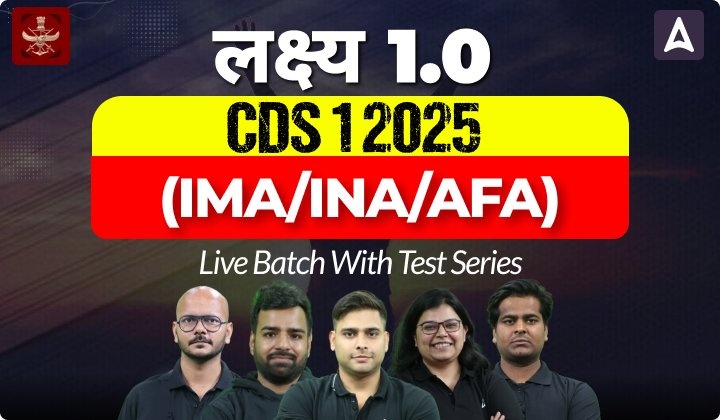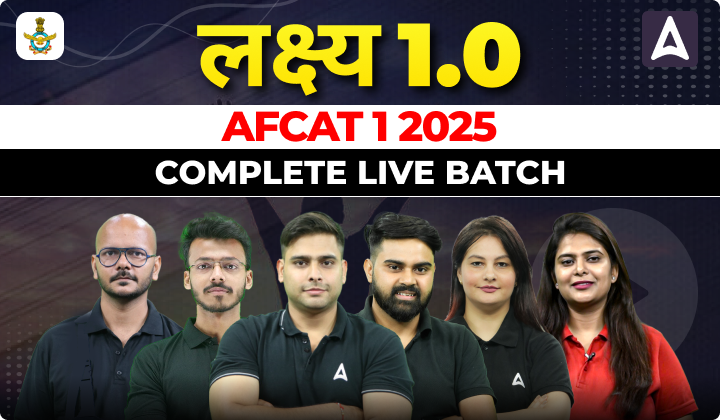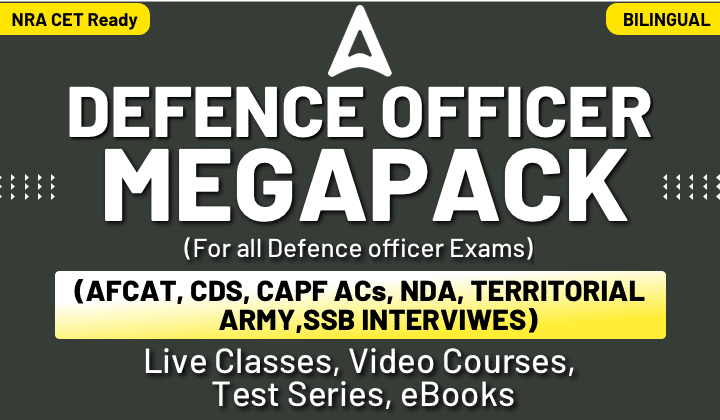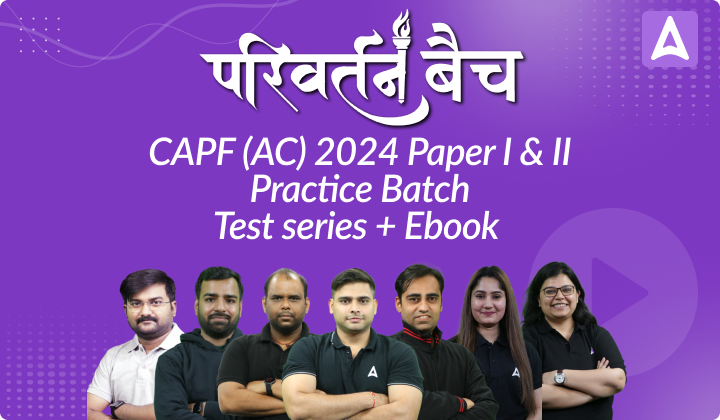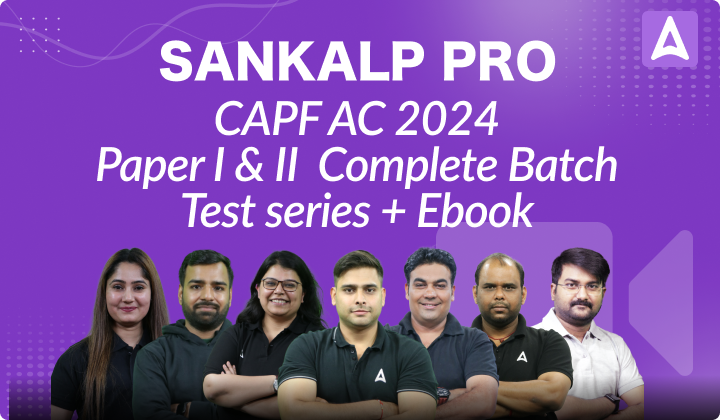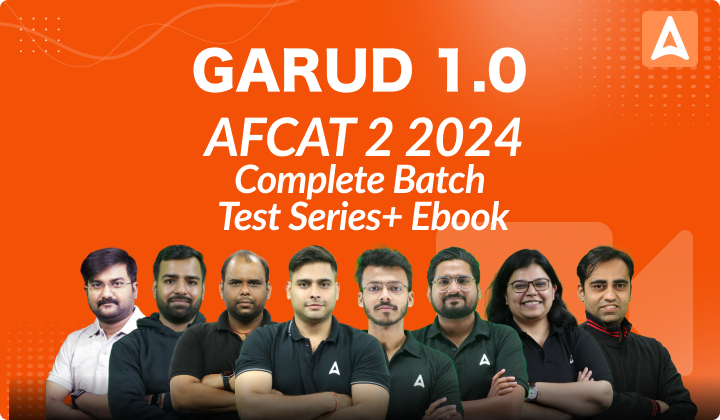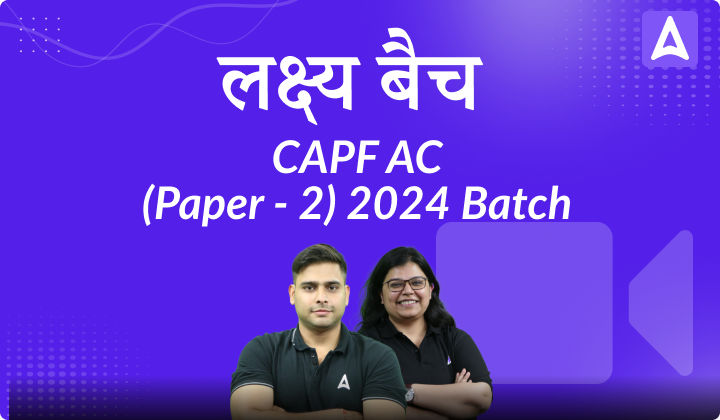The English language plays a vital role in the Indian Air Force’s Agniveer Vayu recruitment program. A total of 20 questions will be asked in the English section of the Agniveer Vayu exam, covering various topics. In this article, we will discuss the Agniveer Vayu Filler English Questions in detail and provide in-depth information especially on the topic of fillers. Along with this, we will also provide comprehensive explanations along with all the questions, so that candidates can understand the concepts better and prepare effectively. Gaining proficiency in English will not only help candidates face these questions but also improve the overall performance of the exam, thereby increasing their chances of success in the recruitment process.
Agniveer Vayu English Questions: Fillers Topic With Proper Explanation
Q1. Select the most appropriate word to fill in the blank.
As far as we know, blue feathers in birds have been _________________ uncommon through time.
(a) fairly
(b) hardly
(c) rarely
(d) barely
S1. Ans. (a)
Sol. The word that can be filled in the blank is ‘fairly’ to make the sentence grammatically and contextually correct.
- ‘Fairly’ means to a moderate extent; quite; reasonably, which fits well in the context of the sentence indicating that blue feathers in birds have been moderately uncommon through time.
- As per the context, the word ‘fairly’ fits in very well, suggesting that while not extremely rare, blue feathers are not common either.
Meanings of other given words:
- Hardly – scarcely; barely; almost not, but it doesn’t convey the idea of moderate rarity as needed in the sentence.
- Rarely – not occurring often; infrequently, which implies a lesser frequency than what is intended in the sentence.
- Barely – scarcely; hardly, but it emphasizes a sense of minimal occurrence rather than moderate rarity.
- Thus, all the other given words have different meanings or intensities and do not fit precisely in the context of the sentence.
Q2. Select the most appropriate word to fill in the blank.
Nothing in the wild goes to waste – not _______________ a footprint.
(a) at all
(b) even
(c) only
(d) apart
S2. Ans. (b)
Sol. The word that can be filled in the blank is ‘even’ to make the sentence grammatically and contextually correct.
- ‘Even’ is used here to emphasize that nothing, not even a footprint, goes to waste in the wild.
- As per the context, the word ‘even’ fits well, highlighting the idea that every element in the wild ecosystem has value and is utilized efficiently.
Meanings of other given words:
- At all – in any way; to any extent, but it doesn’t convey the same emphasis as ‘even’ in the sentence.
- Only – alone; solely, but it doesn’t convey the same emphasis on inclusivity as ‘even’.
- Apart – separately; aside, but it doesn’t convey the same emphasis on inclusivity as ‘even’.
- Thus, all the other given words have different meanings and do not fit precisely in the context of the sentence.
Q3. Select the most appropriate word to fill in the blank.
Studies have shown that in areas where elephants change the ecosystem, species biodiversity is ___________________.
(a) great
(b) the greatest
(c) greater
(d) the great
S3. Ans. (b)
Sol. The word that can be filled in the blank is ‘the greatest’ to make the sentence grammatically and contextually correct.
- ‘The greatest’ is the superlative form of ‘great,’ emphasizing the highest level of species biodiversity.
- As per the context, the phrase ‘the greatest’ fits well, indicating the maximum level of biodiversity in areas where elephants alter the ecosystem.
Meanings of other given words:
- Great – of an extent, amount, or intensity considerably above the normal or average, but it doesn’t convey the superlative form needed in the sentence.
- Greater – larger; bigger, but it doesn’t convey the superlative form needed in the sentence.
- Great – considerable; substantial, but it doesn’t convey the same degree of emphasis as ‘the greatest.’
- Thus, all the other given words do not fit precisely in the context of the sentence.
Q4. Select the most appropriate word to fill in the blank.
Many animals provide the essential service of creating habitat and housing for other species that might not be able to do it for _____________.
(a) itself
(b) oneself
(c) selves
(d) themselves
S4. Ans. (d)
Sol. The word that can be filled in the blank is ‘themselves’ to make the sentence grammatically and contextually correct.
- ‘Themselves’ is the reflexive pronoun indicating that many animals create habitat and housing for other species.
- As per the context, the word ‘themselves’ fits well, correctly referring back to the animals as the subject.
Meanings of other given words:
- Itself – used to refer to a thing or animal previously mentioned as the subject of the clause, but it doesn’t reflect the plural subject ‘many animals’ correctly.
- Oneself – used to refer to the person being addressed as the object of a verb or preposition, but it doesn’t reflect the plural subject ‘many animals’ correctly.
- Himself – used to refer to a male person or animal as the object of a verb or preposition, but it doesn’t reflect the plural subject ‘many animals’ correctly.
- Thus, all the other given words do not fit precisely in the context of the sentence.
Q5. Select the most appropriate word to fill in the blank.
Frog juice is a traditional preparation, _____________ raw, skinned frogs blended with ingredients such as maca root and honey.
(a) made of
(b) made in
(c) made up
(d) made with
S5. Ans. (a)
Sol. The word that can be filled in the blank is ‘made of’ to make the sentence grammatically and contextually correct.
- ‘Made of’ accurately describes the composition of frog juice, which consists of raw, skinned frogs blended with other ingredients.
- As per the context, the phrase ‘made of’ fits well, correctly indicating the ingredients used in preparing frog juice.
Meanings of other given words:
- Made in – produced or manufactured within a particular place or area, but it doesn’t convey the idea of composition as ‘made of’ does.
- Made up – formed or constituted by combining or arranging parts or elements, but it doesn’t convey the idea of composition with specific ingredients.
- Made with – produced or created using a particular substance or material, but it doesn’t convey the same sense of composition as ‘made of.’
- Thus, all the other given words do not fit precisely in the context of the sentence.
Q6. Select the most appropriate option to fill in the blank.
Her ______ response to the criticism surprised everyone.
(a) volatile
(b) measured
(c) erratic
(d) rash
S6. Ans. (b)
Sol. The word “measured” suggests a response that is carefully thought out and deliberate, which contrasts with the expectation that criticism might provoke a more emotional or impulsive reaction. The other options imply a lack of control or unpredictability, which wouldn’t be surprising in the context of criticism.
- The adjective “measured” correctly describes a response that is calm and considered, fitting the context where a surprising reaction is one that is not impulsive or emotional.
Meanings of other options:
- Volatile: liable to change rapidly and unpredictably.
- Erratic: not even or regular in pattern or movement.
- Rash: displaying or proceeding from a lack of careful consideration of the possible consequences of an action.
Q7. Select the most appropriate option to fill in the blank.
The detective’s ______ questioning revealed the suspect’s inconsistencies.
(a) perfunctory
(b) superficial
(c) meticulous
(d) indifferent
S7. Ans. (c)
Sol. The word “meticulous” suggests careful and precise attention to detail, which is essential in questioning that aims to uncover inconsistencies. The other options imply a lack of thoroughness or interest, which would not effectively reveal inconsistencies.
- The adjective “meticulous” correctly describes questioning that is thorough and detailed, fitting the context where the detective is trying to reveal inconsistencies through careful examination.
Meanings of other options:
- Perfunctory: carried out with a minimum of effort or reflection.
- Superficial: existing or occurring at or on the surface.
- Indifferent: having no particular interest or sympathy.
Q8. Select the most appropriate option to fill in the blank.
In the accident on the Ring Road there was a ______ damaged car.
(a) poorly
(b) grimly
(c) mostly
(d) badly
S8. Ans. (d)
Sol. The correct adverb to fill in the blank is “badly,” making the sentence “In the accident on the Ring Road, there was a badly damaged car.”
- “Badly” describes the extent of damage to the car.
Meanings of other given words:
- Poorly: In a poor or inadequate manner.
- Grimly: In a very serious, gloomy, or depressing manner.
- Mostly: For the most part; mainly.
- Thus, “badly” accurately describes the condition of the car following the accident.
Q9. Select the most appropriate option to fill in the blank.
There ______ no electricity for about two hours tomorrow from 10.30 am to 12.30 pm.
(a) will be
(b) had been
(c) was
(d) have been
S9. Ans. (a)
Sol. The correct form to fill in the blank is “will be,” making the sentence “There will be no electricity for about two hours tomorrow from 10.30 am to 12.30 pm.”
- “Will be” indicates a future state or condition.
Meanings of other given words:
- Had been: Past perfect tense, indicating a state or action before another past point.
- Was: Past tense of “be,” indicating a past state or condition.
- Have been: Present perfect tense, indicating a state or action that began in the past and continues to the present.
- Thus, “will be” is the correct choice, predicting a future event.
Q10. Select the most appropriate option to fill in the blank.
The thief ______ up the narrow staircase when the police ______ there.
(a) has already climb, arrive
(b) have already climbed, arrived
(c) had already climbed, arrived
(d) is already climbing, arriving
S10. Ans. (c)
Sol. The correct combination to fill in the blanks is “had already climbed, arrived,” making the sentence “The thief had already climbed up the narrow staircase when the police arrived there.”
- This sentence uses the past perfect tense for the thief’s action, which occurred before the police’s arrival, indicated by the simple past tense.
Meanings of other given words:
- Has already climb, arrive: Incorrect because “has” is present perfect and “arrive” is base form.
- Have already climbed, arrived: Incorrect plural form not matching the singular subject.
- Is already climbing, arriving: Present continuous tense, inappropriate for the completed action.
- Thus, “had already climbed, arrived” correctly sequences the actions in time.
Agniveer Vayu Filler English Questions PDF
If you’re interested in accessing all these questions in PDF format, you can download the Agniveer Vayu Filler English Questions PDF through the link provided below. Candidates can easily obtain it by clicking the link.

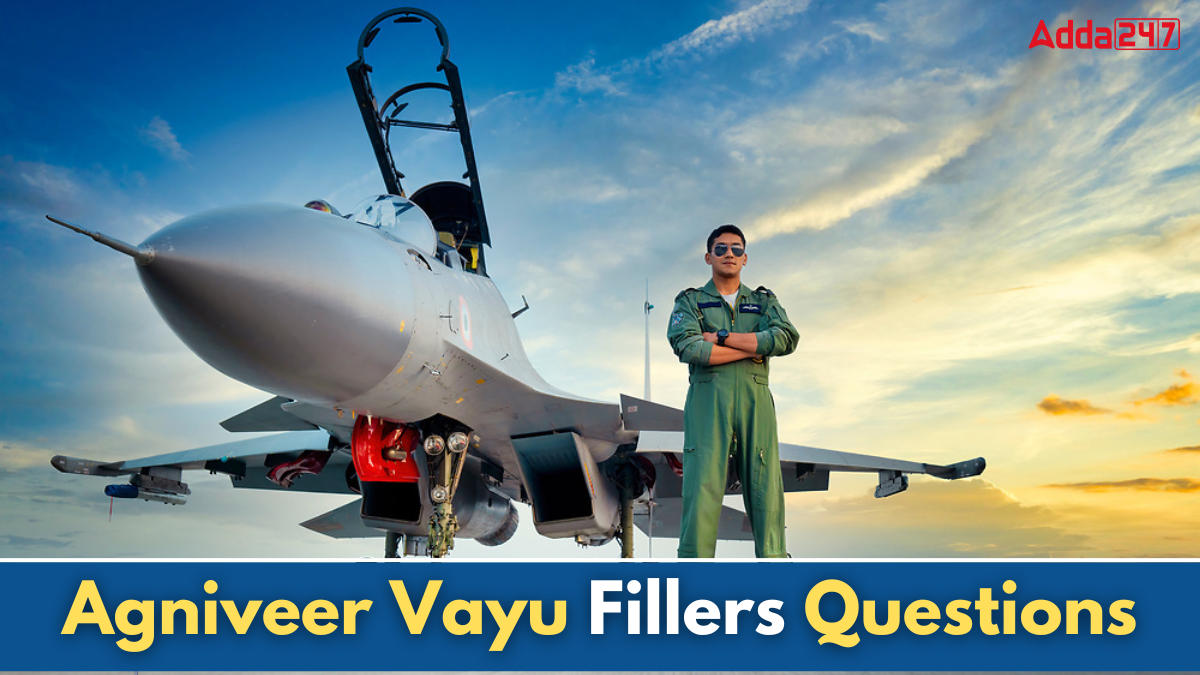
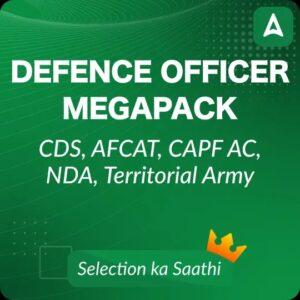

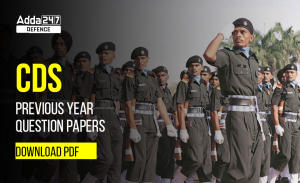 CDS Previous Year Question Papers, Downl...
CDS Previous Year Question Papers, Downl...
 AOC Result 2025 Out, Download Link Activ...
AOC Result 2025 Out, Download Link Activ...
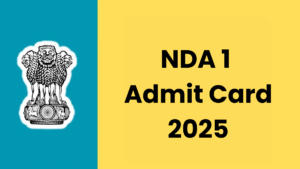 NDA 1 Admit Card 2025 Out, Download NDA ...
NDA 1 Admit Card 2025 Out, Download NDA ...

